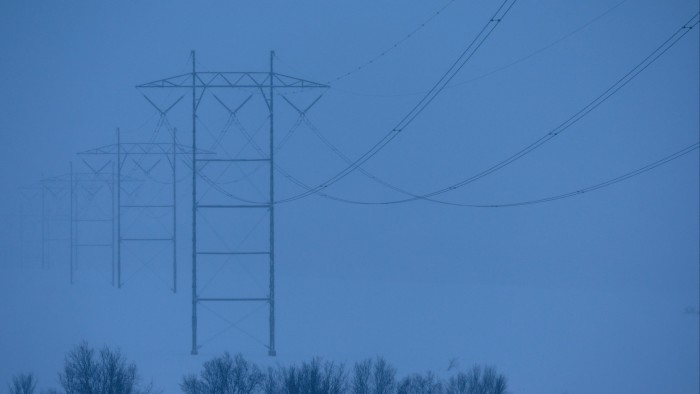Unlock the Editor’s Digest for free
Roula Khalaf, Editor of the FT, selects her favourite stories in this weekly newsletter.
Norway’s two governing parties want to scrap an electricity interconnector to Denmark, with the junior coalition partner also calling for a renegotiation of power links to the UK and Germany, as sky-high prices trigger panic in the rich Nordic country.
A lack of wind in Germany and the North Sea will push electricity prices in southern Norway to NKr13.16 ($1.18) per kilowatt hour on Thursday afternoon, their highest level since 2009 and almost 20 times their level just last week.
“It’s an absolutely shit situation,” said Norway’s energy minister Terje Aasland.
The ruling centre-left Labour party now says it wants to campaign in next year’s parliamentary election, set for September, to turn off electricity interconnectors to Denmark when they come up for renewal in 2026.
Its junior coalition partner, the Centre party, has long demanded an end to the Danish connection and also wants to renegotiate existing interconnectors with the UK and Germany.
The interconnectors are taking the blame for the current high Norwegian prices, with critics arguing Norway should only send electricity from its abundant hydropower abroad after it has ensured low prices at home, as was the case for decades previously.
The issue is also causing deep alarm among EU countries keen to use Norway’s abundant hydroelectric power to help balance energy prices on the continent.
“This is a crunch moment for EU-Norway relations. Reducing power connections to Europe will not be well received,” one EU ambassador in Oslo said.
EU countries believe it is important to have an integrated electricity market and underscore that Norway also imports power using the interconnectors when it needs to.
Norway is also western Europe’s largest petroleum producer and has replaced Russia for many EU countries as their biggest supplier of gas.
But sharp increases in electricity prices in Norway in recent winters have led to a political storm, ensuring that the issue of power interconnectors is likely to be one of the main topics in next year’s elections.
Polls predict that the ruling centre-left government will be crushed in the elections and a centre-right government will emerge.
The right-wing Progress party, which is leading the polls, also wants to scrap the connection with Denmark and to reform the deals with the UK and Germany to reduce “the price infection” to Norway from the continent.
That occurs particularly when there is little to no wind and solar energy being produced, as at present, combined with low winter prices leading to high demand.
Norwegian consumers are somewhat insulated from the high prices as the government pays for 90 per cent of electricity over a certain price. But Progress wants the government to pay for all the power above a lower price, arguing that the state makes billions of kroner from the high electricity prices through its hydropower generation.
There are similar problems in neighbouring Sweden. Consumers in the southern city of Gothenburg on Wednesday paid 190 times more for electricity than those in the northern town of Luleå.
Both Sweden and Norway have poor electricity transmission links in their own countries, meaning that power is often far cheaper in the north, where much of it is generated, than in the south, where most of it is consumed.
Read the full article here

